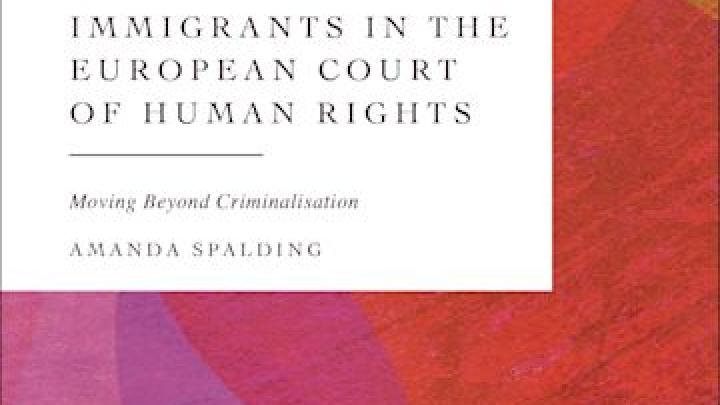From Solidar Passeurs to Smugglers: Dismantling Solidarity Through Criminal Convictions
Posted
Time to read
Maria Gargano is an LL.M graduate at Maastricht University currently working at EEPA-Europe External Policy Advisors as a Research Assistant on Human Trafficking and Smuggling in the Horn of Africa. Maria’s interest is in the European Union border management and fight against human trafficking led by EU agencies like EBCGA-FRONTEX and EUROPOL. In this post she traces the difference between the figure of passeur and what is now defined as a smuggler in order to understand the new figure of the ‘solidar passeur’. Maria is on Twitter @marie_gargano.
Like other borders within the Schengen area, that separating Italy from France in the Maritime Alps, has witnessed considerable mobility of people. Over the years this mountainous stretch of land has represented salvation, freedom or opportunity; Russians and Armenians escaping repression crossed it in the twenties; Italians fled through it from the fascist regime; Jewish Germans did so in the thirties and Yugoslavs in the fifties. Through the decades, locals have tended to sympathise with people on the move. They have built their economies around the transportation, guidance and hosting of these travellers, while at the same time developing a sense of solidarity towards them. Those who help them traverse this border have been known as passeurs.
Being a passeur is part of a tradition and a local business. For Francesco Biamonti, passeurs were characterised by a strict work ethic: ‘We shared a lot of our path- he thought while going up the hill- we knew many nomads and wayfarers. We were two honest passeurs, he was of the trade I was not. We never left anyone behind the border’.
Today, as the populations crossing this border take a new form, those who assist the most recent groups of people trying to cross this border are no longer viewed through the noble frame of the ‘passeur’. Instead, the contemporary ‘solidar passeur’ has been criminalised under French and Italian national law. French and Italian national laws not only punish the transportation of irregular migrants beyond their borders but they also criminalise those providing help in the form of accommodation or any act which constitutes facilitation or help to people on the move. For example, article L 662-I of the French criminal code punishes with up to five years of detention and up to 30.000 euros fine any person who has directly or indirectly facilitated or attempted to facilitate the entry, the movement or the accommodation of an irregular migrant in the French territory. Similarly, the Italian criminal law, adopted in 2009, provides that the penalty for passeurs is up to fifteen years of detention on top of fines of up to 15.000 euros per person helped or transported. When the number of people facilitated is higher than five, punishment is harsher.
While the Facilitation Directive provides a non-binding option to EU Member States to apply an exception to the criminalisation of facilitation when the latter is ‘humanitarian’ in nature, France and Italy decided not to apply it, preferring instead to criminalise migratory flows while adding a brick to the fortress of European borders. In so doing, they highlight the legal uncertainty and inconsistency in defining and differentiating between facilitation, humanitarian assistance and smuggling.
At the beginning of 2017, there were two judicial cases at both sides of the French-Italian border, which illustrate the operation of these criminal law provisions. Cédric Herrou- a French farmer from the Roya Valley was sentenced to a 3000 euros fine last February for giving shelter to migrants and helping them cross the borders. Felix Croft, a French activist, was caught by the Italian Police in Ventimiglia last July while helping a Sudanese family- composed of two children, their six-months pregnant mother, the father and their uncle- to reach France. He was prosecuted for ‘aiding illegal migration’.
This is the first time that a person, known to be a volunteer, or ‘solidar passeur’, was charged in Italy. One month after the trial, on 16th March, the Public Prosecutor asked for 3 years and 4 months of detention coupled with a 50,000 euros fine. In addition, she clearly stated that her mere concern was the violation of the Italian law, and cannot take into account the state of necessity of the people concerned. Moreover, the Public Prosecutor highlighted the risk in which the defendant put the countries ‘exposing them to jihadists and foreign fighters’. She justified the harsh sanctions requested by focusing on the threat people on the move pose to national security and by equating activists with members of a smuggling network.
On Thursday 27th of April, the Court acquitted Mr Croft. After the verdict, he said ‘The voice of reason has prevailed: helping people is moral and legal’. As the volume of arrivals continues to grow, and amid the explosive militarization of border control practices, ‘solidar passeurs’ ultimately respond to the lack of channels for legal entry and transit to which so many are subjected. Does the verdict signal a turn away from deterrence and punishment or will le délit de solidarité remain under persecution?
Any comments about this post? Get in touch with us! Send us an email, or post a comment here or on Facebook. You can also tweet us.
__________
How to cite this blog post (Harvard style)
Gargano, M. (2017) From Solidar Passeurs to Smugglers: Dismantling Solidarity Through Criminal Convictions. Available at: https://www.law.ox.ac.uk/research-subject-groups/centre-criminology/centreborder-criminologies/blog/2017/04/solidar-passeurs (Accessed [date]).
Share
YOU MAY ALSO BE INTERESTED IN
With the support of









